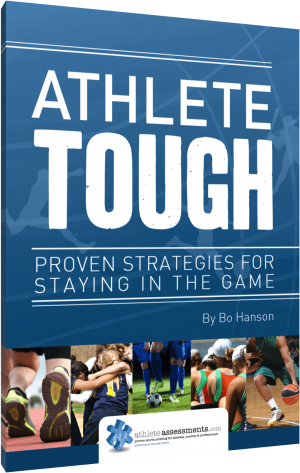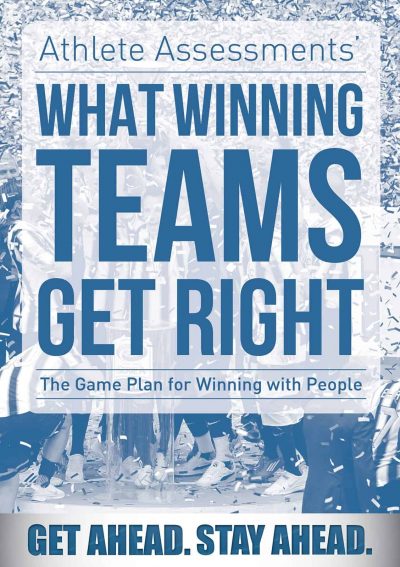Athlete Resiliency: 5 Minutes with Bo Hanson
In this week’s 5 Minutes with Bo Hanson, we revisit the highly requested topic of Athlete Resiliency. Specifically we discuss two practical strategies you can use as a coach to help your athletes improve their resiliency: Reframing and Attribution Theory. As Athlete Resiliency is such an important topic, you may also be interested in where we have discussed it before in an article and video presentation.
Athlete Resiliency Transcript
Welcome to this week’s video series. We’re talking about, again, that really important topic of athlete resiliency or mental toughness. Whatever you want to call it every coach wants it in their athletes and we all want to try and develop it as coaches. That’s part of our challenge as coaches is to look at some specific strategies on how to develop this skill. We’ve spoken before about this in the context of, this is a skill – it’s not something that you’re born with, it’s not a personality trait, it’s not even a behavioral style to suggest that a D or an I or an S or a C profile is going to be more or less resilient. So this is a skill that everyone can develop so we’re going to look at two specific strategies on how to develop this skill.
Reframing and Athlete Resiliency
Firstly we’re going to look at what we call reframing. Reframing, really simply, is something that every person will already do. Once again, when we’re talking about resilient people more consciously using this particular skill. Reframing is simply changing the meaning of something. The reality is, whatever meaning something has is the meaning we chose to give it either consciously or unconsciously. As an example, I vividly remember losing races and having the reframe of that loss, not as a failure but as an opportunity to learn how to do it better in the future. So when you get an unwanted result, the reframe of that is – What can I do differently? Can I learn from this? How can I actually improve my performance based on what I did today? Today’s result was not the one that I wanted but ultimately how do I improve my skills, my abilities, my strategies, my technique or my training so that I can learn something and do it better in the future? That’s changing a negative meaning which could be debilitating it could be seen as failure it could impact your self-esteem and belief in yourself to changing it to something that’s going to be productive. Not necessarily always positive, it is disappointing and frustrating to experience a poor result we’re just trying to change this into more productive thinking.
What’s interesting is that our role as a coach, there is a time and a place when an athlete is ready to have the experience reframed for them. What I mean by that is if the athlete does suffer some form of disappointment in their performance then obviously there’s going to be some lingering effect as to the fact that they’re trying to cope with that poor performance. They’re obviously going to be frustrated or disappointed or upset. Everyone needs time to recover from that and to calm down a little bit. At that point when they’re ready to hear from you as a coach, the key thing we need to be doing is asking them the right question. Essentially every question comes back to not asking why did that happen, but more importantly if we’re reframing for the productive outcome and meaning, the question has to be how we can do it better next time? What did you learn? And how can we do this better?
So that’s really simply what reframing is. As a coach it’s critical that we choose our right time to do it, it’s also critical to note if our athletes are already doing this and to reinforce that behavior.
Attribution Theory and Athlete Resiliency
The next thing we’re going to talk about in this topic of athlete resiliency, and in particular how we coach it, is looking at what we call attribution theory. Attribution theory is really just analyzing when an athlete has a good or a poor performance, what do they attribute that to? Because what we found is that resilient athletes more likely attribute their success or even failure in some cases to something that they did. They attribute that to a behavior that they did. It could be a strategy or their technique or how they executed under pressure. So what that sounds like is when an athlete did not get the result that they want, they very quickly talk about what they need to do differently in the future. For example: to execute my particular technique better, I didn’t perform in the rougher conditions or I didn’t handle the environment as well as I would have liked to and therefore I just need to improve in these particular areas as opposed to attributing to something that is inherent to themselves perhaps their personality, their identity for example: I didn’t succeed simply because I’m no good or I’m just not good at this sport or I’m just not a great athlete or I just don’t have what it takes.
When athletes start making comments like that, what they’re attributing their lack of performance to is deep inside of themselves and their identity as opposed to just the behavior they can improve. So it’s really critical to listen to the language that your athletes are using when they’re talking about either their poor performances or their good performances. Sometimes it works the other way, where you have an athlete that just attributes their good performances to things like just waking up on the right side of the bed today or perhaps because the opponent didn’t play well that’s why I was successful or I just had everything go my way today. So they’re attributing they’re success to something that is actually totally outside of their control. The reality is, success is fleeting and it can become just a matter of chance or luck. Resilient athletes never do that, they attribute their success or their failure to things that they have control over. The biggest thing that we have control over is ourselves. In the past we’ve done a video about the circle of control or the circle of influence which is another very critical model to understand and try to develop this kind of resiliency in our athletes. Today we’re looking at those two concepts, reframing and the second one was attribution theory.
Where to from here…
This topic is one of many topics covered in the ATHLETE TOUGH™ program developed by Bo Hanson. Being ATHLETE TOUGH is defined by the actions you take when your performance matters the most. Bo Hanson’s unique and proven program is designed to ensure your athletes never give up, never quit on their team and never quit on themselves. It will deliver strategies on how to be mentally resilient and provide step-by-step processes to help your athletes become and stay mentally strong. Find out more here.
Looking to catch up?
You can watch all videos in the 5 Minutes with Bo Hanson series.
At Athlete Assessments we’re here to provide you with excellence in service and to help you be your best. If there is anything we can do to be of service, don’t hesitate to contact us.







